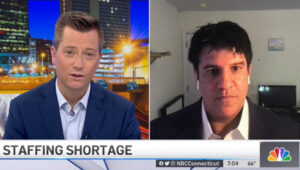
I was recently interviewed by NBC news on Connecticut’s job market. The “shortage” of workers seems like it would be a blessing for the job seeker. And, of course, if just paying the bills was the issue, that’s probably the case. The problem is not the number of job openings but the number of “good job” openings.
This leads to both a practical and philosophical question: what is a good job?
On the practical front:
Good jobs pay more than a living wage. There should be enough of a cushion to save at least some money. Good jobs have decent benefits. Your health coverage should generally be covered. Good jobs are secure. Worries about lay offs each quarter or being an endless independent contractor are not part of the day to day thoughts. Good jobs have career paths. Even a job that is pretty good in the moment can be tough if there is no next step.
On the philosophical front:
Good jobs make people feel purposeful. This doesn’t need to be some incredibly lofty purpose. We all can’t be in helping professions. The following parable illustrates the point:
After the great fire of 1666 that leveled London, the world’s most famous architect, Christopher Wren, was commissioned to rebuild St Paul’s Cathedral.
One day in 1671, Christopher Wren observed three bricklayers on a scaffold, one crouched, one half-standing and one standing tall, working very hard and fast. To the first bricklayer, Christopher Wren asked the question, “What are you doing?” to which the bricklayer replied, “I’m a bricklayer. I’m working hard laying bricks to feed my family.” The second bricklayer, responded, “I’m a builder. I’m building a wall.” But the third brick layer, the most productive of the three and the future leader of the group, when asked the question, “What are you doing?” replied with a gleam in his eye, “I’m a cathedral builder. I’m building a great cathedral to The Almighty.”
So if you don’t feel purposeful, you might not have a “good job.” If that’s the case, we can help.